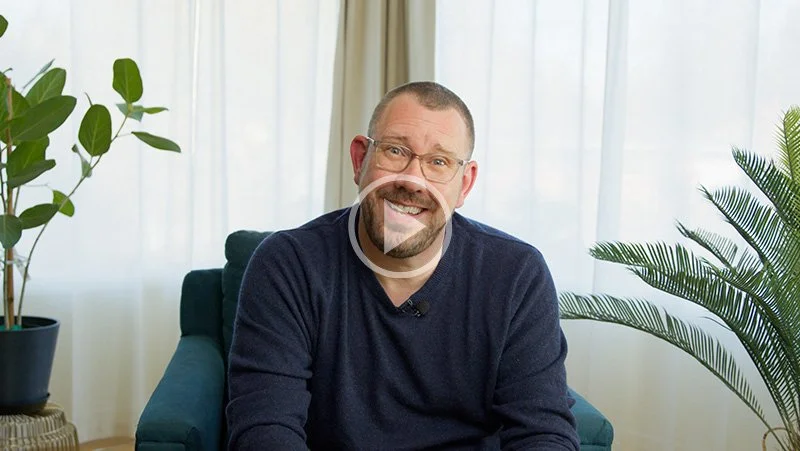The 5 Tenets of Improv & "Yes And"
Welcome to the #culturedrop. Every Tuesday, Galen Emanuele emails tools to advance leadership skills, team culture, and personal growth. No spam, just great content. Sign up now to get it in your inbox.
Embracing the 5 tenets of improv to create a “Yes, And” culture in your life and at work.
This week’s Culture Drop I’m diving into the five tenets of improv and how they can transform your approach to challenges, collaboration, and personal growth. When put into action, these can help you to create what I call a Yes, And Culture — that fosters openness, presence. adaptability, and positivity — in your life and work.
“These tenets can transform how you move through the world in a major way.”
Improv is about being in the moment and making magic from the unknown. Everything in improv is centered around the core concept of “yes, and.” Essentially meaning that you take and accept whatever is given to you by your partner, and then add more information onto it.
Surrounding that core concept, there are 5 main tenets (or skills) that make improv work. These tenets can transform how you move through the world in a major way. Here are the 5 tenets of improv, and what they look like in practice:
1) Say Yes
Saying “yes” isn’t about agreeing to everything, blind agreement, or pretending to like ideas that you don’t — it’s about being open and receptive. Looking for ways to affirm ideas, find solutions, seek what’s possible, and move forward.
In practice:
Identify a challenge where you can ask, “What’s possible here?”
Consider how you might resolve a conflict or approach a new idea with openness.
2) Listen & Be Present
Fully tune into the present moment for yourself and in interactions. Make others feel listened to. This isn’t just about hearing words; it’s about truly being in the moment.
In practice:
Reflect on someone in your life who could benefit from your full attention today. Intentionally make them feel listened to.
Let go of distractions and focus on being present in your next conversation.
Can I let go of past grievances or future worries to be here now?
3) Make Others Look Good
Build others up. Think about how you can support, praise, or advocate for someone else.
In practice:
Publicly (or privately and directly) celebrate someone’s work or efforts.
Write a glowing LinkedIn recommendation or leave a kind review.
Share a thoughtful compliment that will make someone else’s day.
4) Embrace Change & Failure
Change and failure are inevitable — they’re pathways to growth and discovery. Unexpected circumstances are commonplace, don’t be jarred and thrown far off track when they arise. Embrace uncertainty and the non-linear journey forward.
In practice:
Reframe a current challenge with: What skill am I building because of this struggle?
Reflect on a failure as a stepping stone toward future growth.
5) Be Positive
Positivity is about how you carry yourself and impact others, not pretending everything is perfect. Positivity doesn’t mean ignoring negativity; it’s about choosing your own disposition and perspective.
In practice:
Where or how am I being grumpy or negative, and how can I shift and make a different choice?
Consciously choose words, body language, and a tone that lifts others instead of bringing them down.
A Quick 15-Minute Reset Exercise:
Grab a piece of paper or your favorite note-taking app and take a few minutes to reflect on each tenet and your life right now. Reflect and jot down:
Say Yes: What’s one current situation that I can approach with openness and possibility?
Listen & Be Present: Who needs my attention and presence today? Is it me — am I stewing in the past, or anxious about the future?
Make Others Look Good: How can I celebrate or support someone else?
Embrace Change and Failure: Where can I see growth in a struggle?
Be Positive: What small shift can I make to bring some lightness to my interactions?
“The principles of improv aren’t just for an improv stage — they’re simple, practical tools for navigating the complexities of life and work.”
Why this matters.
The principles of improv aren’t just for an improv stage — they’re simple, practical tools for navigating the complexities of life and work.
From fostering innovation to building stronger relationships, these simple tools applied to your personal and work life can literally and completely reframe your experience as a human and in your interactions with others.
Go be awesome.
Related Blogs:
The Power of "Yes, And" in Workplaces & Teams
Want more?
This article was created by Galen Emanuele for the #culturedrop. Free leadership and team culture content in less than 5 minutes a week. Check out the rest of this month's content and subscribe to the Culture Drop at https://bit.ly/culturedrop








